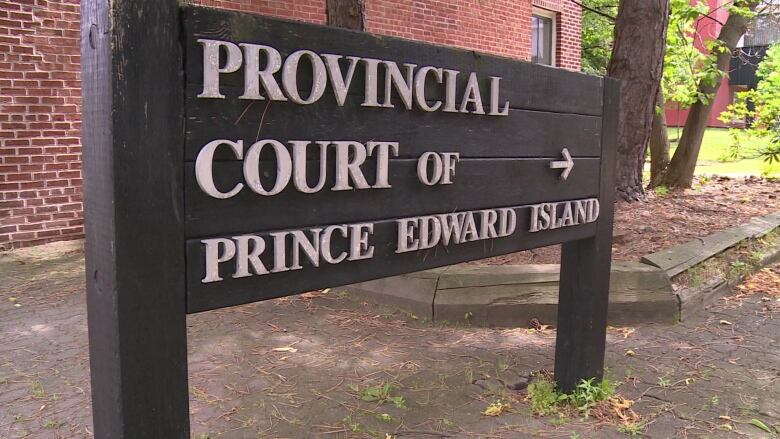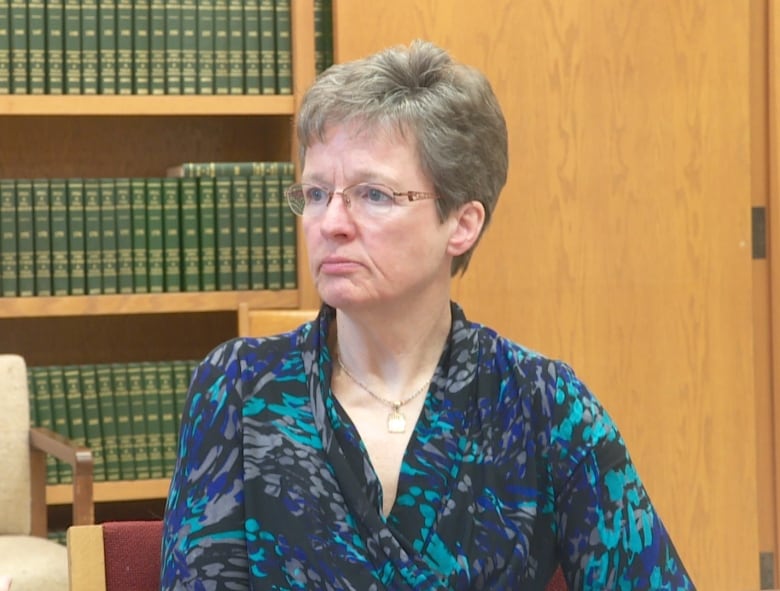Reopening P.E.I.'s provincial court will require group effort, says judge
'It's going to be very much a co-ordination, communication effort that's going to be required of many people'

Staff at P.E.I.'s provincial court have been reimagininghow it will operate once reopened for the last few weeks.
The reopening of P.E.I.'sprovincial court is part of Phase 3 of the province's ease-back plan, set to launch on Monday, June 1.
Ensuring physical distancing and health measures are adhered to will require a combined effort, said P.E.I.'s Chief Provincial CourtJudgeNancyOrr.
"It's going to be very much a co-ordination, communicationeffort that's going to be required of many people," she said.
While navigating the new terrain could be tricky, Orr said P.E.I.'s provincial courts won't experience nearly as much of a backlog as other jurisdictions across the country.
"Prior to COVID-19, we were probably still the jurisdiction in the country that has the shortest time from entering a not guilty plea to a trial, so we didn't have a lot of matters that had to be adjourned," she said.
Other jurisdictions they're talking hundreds and thousands. Judge Nancy Orr
Orr said the only matters the courts have been dealing with since the pandemic reached the Island involvedpeople who were already in custody and were ready to have their matters dealt with.
The Island's backlog will mainly consist of people who were awaiting pleas before COVID-19or people who have been picked up and charged within the last eight weeks and have appearance notices now.
"Our numbers were probably in the range of maybe less than 10 trials or preliminaryinquiries that had to be adjourned in thelast two months, because we couldn't deal with them because of COVID-19. Other jurisdictions they're talking hundreds and thousands."
A slow start
She said she anticipates a slow start as the provincial courts begin to operate under new COVID-19 measures.
Before COVID-19, on court docketdays staff would expect anywhere between 30 and 50 people to fill up the courtrooms, but with the new health measures that will have to change, Orr said.

"So what we'll try to do is find out what matters are not able to be dealt with yet," Orr said.
"Because a lot of the lawyers have not been in their offices or they haven't had the opportunity to meet with the clients to review the files," she said.
Orr saidshe expects many matters willbe forced to be adjourned on June 1 and will have to be handled over the phone or by video conferencing in an effort to keep the number of people who come into contact with the courts at a minimum.
We can't send them 20 people one day and 30 another ... they only have so many cells they can use for the isolation.Judge Nancy Orr
She also saidthe courts will stagger appearance times for counsel as well. Self-represented people will receive a call over the next few days to inform them that courts will reopen next week and to give guidance on how self-representation will proceed under the new guidelines.
Orr said if there is a matter where a client wants to plead not guilty, it will be handled by the person's lawyer over the phone.If it's an indictable or more serious matter, they can get a designation of counselso the accused doesn't have to come to court.
Those who wish to plead guilty, she said,will have to be in the courtroom. If there is a possibility that the person would be looking at a custodial sentence, then the courts will have to co-ordinate with the jail on how to proceed.
"We can't send them 20 people one day and 30 another ... they only have so many cells they can use for the isolation," Orr said.
More from CBC P.E.I.
With files from Angela Walker












_(720p).jpg)


 OFFICIAL HD MUSIC VIDEO.jpg)
.jpg)



























































































